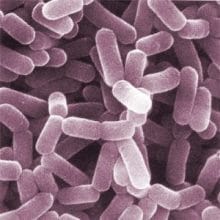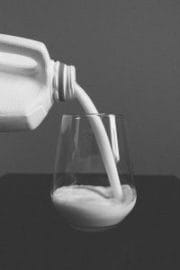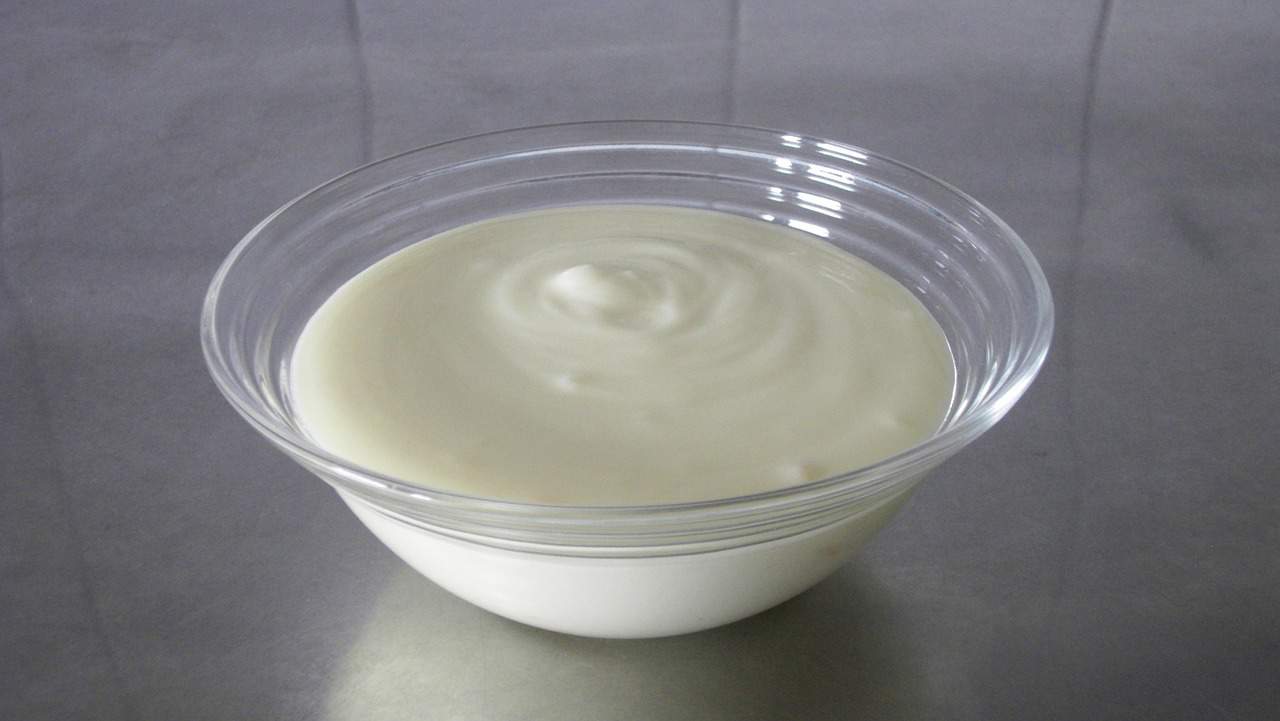One of the important prerequisites for good health is proper condition of the so-called microflora, which is responsible for many important life processes, among others it helps in absorption of nutrients and stimulates the functioning of the immune system.
Table of contents
- 1 Significance of intestinal bacterial flora for the condition of the body
- 2 Symptoms and effects of impaired bacterial flora
- 3 What are probiotics and how do they work?
- 4 What are prebiotics?
- 5 In the service of a healthy digestive system – probiotics for the gut
- 6 Synbiotics – prebiotics and probiotics, two in one
Significance of intestinal bacterial flora for the condition of the body
 The human body contains about 2 kg of bacteria and other microorganisms, most of which are located in the digestive system, mainly in the large intestine. The so-called intestinal microflora is extremely rich and diverse, consisting of about 1000 different species of microorganisms, and plays a huge role in the functioning of the entire body.
The human body contains about 2 kg of bacteria and other microorganisms, most of which are located in the digestive system, mainly in the large intestine. The so-called intestinal microflora is extremely rich and diverse, consisting of about 1000 different species of microorganisms, and plays a huge role in the functioning of the entire body.
Healthy intestines, well-being and proper condition of the whole organism to a large extent result from an adequate amount of beneficial bacteria, necessary for proper digestive processes, production of antibodies and inhibition of pathogens and activation of lymphocytes and macrophages, crucial for the functioning of immune cells.
Symptoms and effects of impaired bacterial flora
 Disorders of the microflora, or changes in its natural composition, can be the cause of many different diseases.
Disorders of the microflora, or changes in its natural composition, can be the cause of many different diseases.
What is more, symptoms of changes in the bacterial flora are not always associated with the digestive process. Apart from typical flatulence, constipation, gas or diarrhoea, they may cause anaemia, vitamin deficiency, allergies, low immunity or chronic fatigue.
A dangerous consequence of the disorders is primarily the degradation of the pro-health bacteria Bifidobacterium and Lactobacillus. These microorganisms produce lactic acid and are responsible for a number of important life activities, such as production of certain vitamins, supporting and accelerating metabolic processes, production of antibodies, maintaining optimal cholesterol level, preventing infections, stomach ulcers, and cancer.
Long-term disruption of the natural balance of microflora can cause very negative effects on our health, ranging from digestive complaints to intellectual and mental disorders.
What are probiotics and how do they work?
 The word probiotic itself comes from Greek and means something “for health”. Probiotics are live cultures of bacteria (Bifidobacterium, Lactobacillus) or yeasts (Saccharomyces), which protect our digestive system from the harmful effects of pathogenic microorganisms and, consequently, have a beneficial effect on overall health.
The word probiotic itself comes from Greek and means something “for health”. Probiotics are live cultures of bacteria (Bifidobacterium, Lactobacillus) or yeasts (Saccharomyces), which protect our digestive system from the harmful effects of pathogenic microorganisms and, consequently, have a beneficial effect on overall health.
Their presence is especially desirable in the case of antibiotic treatment which sterilizes the organism, or chronic illness requiring constant medication.
Natural probiotics, whose health-promoting properties were intuitively appreciated by the ancients, can be found primarily in fermented dairy products – yogurts, kefirs or buttermilk; as well as in sauerkraut and cucumbers, olives and dark chocolate. Probiotics, taken either in the form of natural food or as probiotic preparations, help to restore the imbalance of bacterial flora and thus protect against unpleasant and sometimes dangerous consequences for the health.
What are prebiotics?
In order for probiotics to develop and perform their tasks well, they must be properly nourished. Prebiotics are precisely such nutrients which are fed to probiotic bacteria. They are not, like probiotics, live microorganisms, but substances not subjected to digestion, stimulating the activity of good bacteria. The best known in this field is dietary fiber found in the form of cellulose, pectin, gum, or inulin.
Natural prebiotics can be found in such foods as: chicory, artichokes, onions, garlic, cereal products, bananas, asparagus, leeks, parsley. Body-friendly prebiotics increase the proliferation of good bacteria, while protecting against the development of many diseases, including those of the digestive system or lack of immunity.
In the service of a healthy digestive system – probiotics for the gut
Most of the diseases that plague us, typical of our times, such as allergies, joint and muscle pains, lowered immunity and even mental problems, may have their roots in intestinal disorders. Symptoms such as bloating, gas, constipation, diarrhea, or the increasingly common irritable bowel syndrome, as well as a number of other disorders, can be effectively alleviated by using probiotics and prebiotics.
In addition to the natural ones, contained in food products, probiotics and prebiotics can be purchased in the form of dietary supplements. It must be remembered, however, that even the best probiotics may prove to be ineffective if the supplement is improperly selected.
The healing properties in relation to a particular disease have specific strains of bacteria, not their species. Supplements with probiotics and prebiotics should therefore have specific strainsof bacteria in their composition.
Good probiotics can be effective not only in case of intestinal problems, but also in diseases of other organs, for example in recurrent upper respiratory tract infections or vaginal infections. They can also be extremely helpful in lowered immunity.
Synbiotics – prebiotics and probiotics, two in one
A synbiotic is a combination of a probiotic and a prebiotic, i.e. live bacteria cultures with a substance stimulating their growth and activity. As a result of using this type of formulation, in one supplement we are dealing with a combination of beneficial bacteria with a nutrient suitable for them. As an example we can use the N°1 ProBioticdietary supplement, which contains live bacteria cultures from 10 selected strains together with a prebiotic – acacia fiber, thanks to which the probiotic bacteria are active and multiply properly.
Remember that a good synbiotic preparation is indispensable in any antibiotic treatment. It can also significantly improve our health and well-being in case of:
- a weakened immune system,
- allergies of various kinds,
- long-lasting fatigue and stress,
- excessive alcohol consumption,
- steroid use,
- use of contraceptives,
- intimate infections,
- eating a poor diet.

